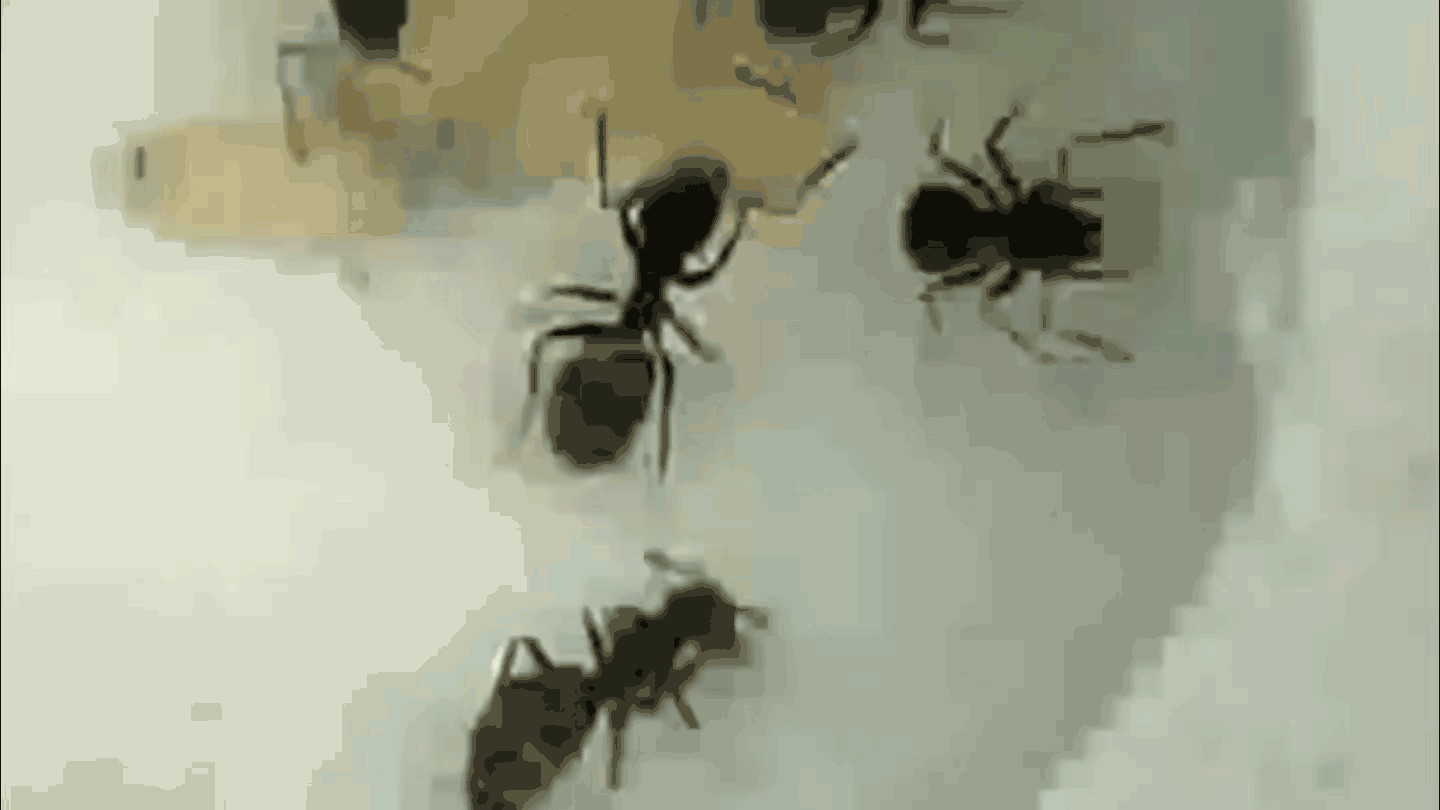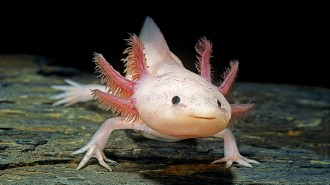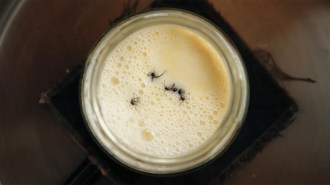In the complex arena of chimpanzee sexual politics, ambitious males achieve congress — and lots of it — with a “prey for play” approach. Female chimps in a wild African community mated more frequently with males who, over a 22-month period, shared meat that had been acquired via monkey hunts, report graduate student Cristina Gomes and anthropologist Christophe Boesch, both of the Max Planck Institute for Evolutionary Anthropology in Leipzig, Germany.
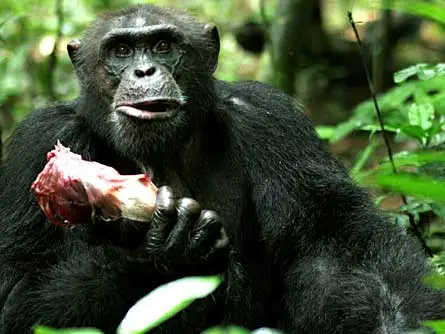
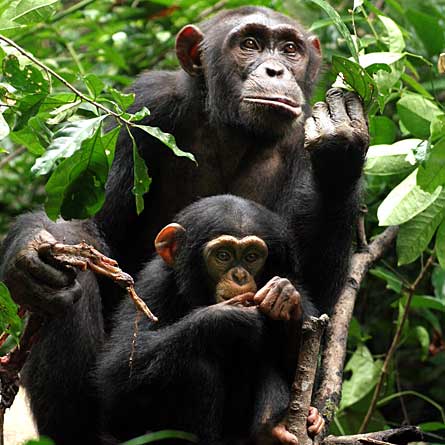
Gomes and Boesch’s study, published online April 8 in PLoS ONE, provides a new perspective for why chimps hunt and then share meat.
Researchers have long known that wild chimps — mainly males — occasionally form hunting parties to chase down and kill colobus monkeys and other animals. Hunters eat much, but not all, of the meat obtained in this way.
Anthropologist Craig Stanford, who was not involved in the study, proposed a meat-for-sex hypothesis about 15 years ago. But studies of hunting and meat sharing by chimps have generally lasted a few months, yielding mixed support for a male tendency to give meat to estrous females, whose swollen genital areas signal sexual readiness.
Other studies have suggested that it’s also possible that males give meat to current mating partners. Or hunters may divvy up meat among themselves to forge alliances; hunt only during times of plentiful food, when meat sharing is not a great concern; or covet meat as a dietary supplement that is rarely exchanged.
“Our results strongly suggest that wild chimpanzees exchange meat for sex on a long-term basis,” Gomes says. In the Taï chimp community, located in the western African nation of C´te d’Ivoire, males preferentially shared meat not only with currently estrous females, but also with those who became estrous months later, she notes. In the long run, hunters who shared meat with females doubled their mating success, whereas female recipients increased their caloric intake without having to participate in physically taxing hunts.
“There’s no single explanation for chimp hunting patterns, but this new paper shows that we can’t dismiss a sex-for-meat strategy operating at any chimp study site,” says Stanford, of the University of Southern California in Los Angeles. A long-term perspective now appears crucial for understanding how chimps share meat, he says.
“This is one of the most rigorous tests of the hypothesis that chimpanzees trade meat for sex,” remarks Harvard University zoologist Ian Gilby, who studies hunting and meat sharing among chimps in two other African communities.
Gomes and Boesch collected data on meat sharing and mating frequency among Taï chimps between 2003 and 2006. The group studied consisted of 49 individuals, with five adult males and 14 adult females. About 3,000 hours of observation yielded information on 90 successful monkey-hunting expeditions, as well as meat offerings and mating.
Females mated more frequently with hunters who gave them meat at least once, not necessarily those who shared meat on many occasions. Other factors, such as male social rank, also affected male chimps’ mating success and possibly influenced females’ mating decisions, Gomes says.
She and Boesch accounted for possible extra influences on meat sharing by males, including begging for meat by some females at hunt sites and previous instances of mating between specific pairs.
Gilby takes a cautious view of the results. As in other chimp groups, some Taï females may have harassed hunters into sharing — by pulling on carcasses and putting their hands over males’ mouths — and thus become more likely mating partners. The team also excluded lactating females, who don’t mate for several years, possibly muddying the results, Gilby contends.

